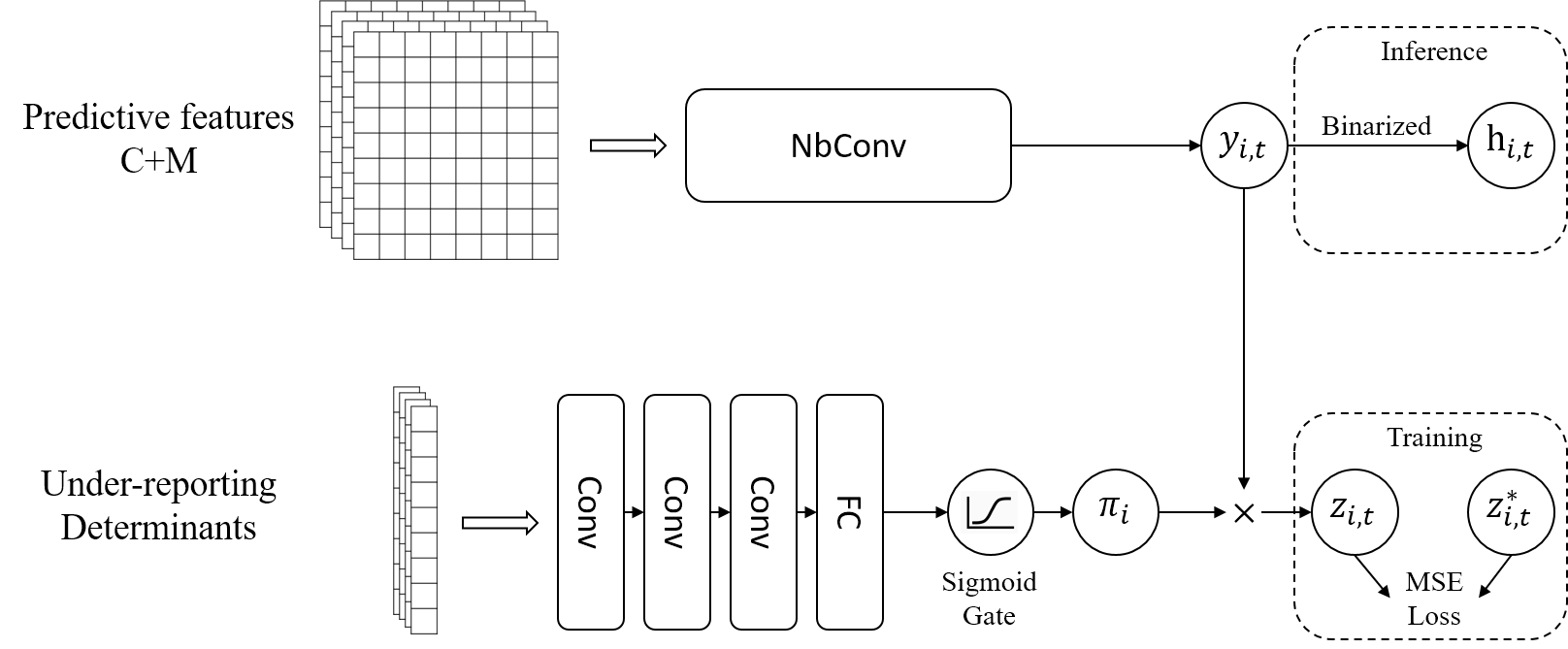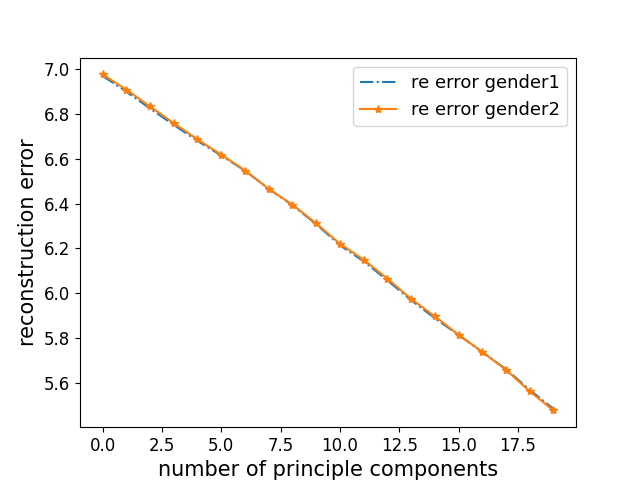Enhancing Fairness in Neural Networks Using FairVIC
2404.18134

0
0
🧠
Abstract
Mitigating bias in automated decision-making systems, specifically deep learning models, is a critical challenge in achieving fairness. This complexity stems from factors such as nuanced definitions of fairness, unique biases in each dataset, and the trade-off between fairness and model accuracy. To address such issues, we introduce FairVIC, an innovative approach designed to enhance fairness in neural networks by addressing inherent biases at the training stage. FairVIC differs from traditional approaches that typically address biases at the data preprocessing stage. Instead, it integrates variance, invariance and covariance into the loss function to minimise the model's dependency on protected characteristics for making predictions, thus promoting fairness. Our experimentation and evaluation consists of training neural networks on three datasets known for their biases, comparing our results to state-of-the-art algorithms, evaluating on different sizes of model architectures, and carrying out sensitivity analysis to examine the fairness-accuracy trade-off. Through our implementation of FairVIC, we observed a significant improvement in fairness across all metrics tested, without compromising the model's accuracy to a detrimental extent. Our findings suggest that FairVIC presents a straightforward, out-of-the-box solution for the development of fairer deep learning models, thereby offering a generalisable solution applicable across many tasks and datasets.
Create account to get full access
Overview
- Mitigating bias in automated decision-making systems, particularly deep learning models, is a critical challenge in achieving fairness.
- This complexity stems from factors like nuanced definitions of fairness, unique biases in datasets, and the trade-off between fairness and model accuracy.
- To address these issues, the researchers introduce FairVIC, an approach to enhance fairness in neural networks by addressing inherent biases during the training stage.
Plain English Explanation
Automated decision-making systems, such as those powered by deep learning, can sometimes make unfair or biased decisions. This is a complex problem that arises from several factors. For example, there are different ways to define what "fairness" means, and datasets used to train these models may have their own built-in biases. Additionally, there is often a trade-off between making a model more fair and maintaining its accuracy.
To tackle this challenge, the researchers developed a new approach called FairVIC. Unlike traditional methods that try to address biases by preprocessing the data, FairVIC integrates fairness directly into the training process of the neural network. Specifically, it incorporates measures of variance, invariance, and covariance into the model's loss function. This helps minimize the model's reliance on protected characteristics (like race or gender) when making predictions, thereby promoting fairness.
Technical Explanation
The researchers evaluated FairVIC by training neural networks on three datasets known to have biases, and comparing the results to state-of-the-art bias mitigation techniques. They also tested different model architectures and performed sensitivity analyses to examine the trade-off between fairness and accuracy.
Through their experiments, the researchers found that FairVIC significantly improved fairness across various metrics, without excessively compromising the model's accuracy. This suggests that FairVIC presents a straightforward, "out-of-the-box" solution for developing fairer deep learning models, with potential applicability across many tasks and datasets.
Critical Analysis
The paper provides a comprehensive evaluation of FairVIC, including comparisons to other state-of-the-art approaches and analyses of the fairness-accuracy trade-off. However, the authors acknowledge that their work focuses on supervised learning tasks and does not address fairness in generative AI systems.
Additionally, the paper does not delve into the potential fairness challenges in domain-specific applications or address how FairVIC might perform in dynamic, real-world environments where data and user populations are constantly evolving. These are important considerations for the practical deployment of such fairness-enhancing techniques.
Conclusion
The FairVIC approach presented in this paper offers a promising solution for mitigating bias in deep learning models and promoting fairness in automated decision-making systems. By integrating fairness directly into the training process, the researchers have developed a straightforward and generalizable technique that can be applied across a range of tasks and datasets. While the paper provides a thorough evaluation, further research is needed to address the potential limitations and explore the real-world applicability of FairVIC in diverse, dynamic environments.
This summary was produced with help from an AI and may contain inaccuracies - check out the links to read the original source documents!
Related Papers

Improving the Fairness of Deep-Learning, Short-term Crime Prediction with Under-reporting-aware Models
Jiahui Wu, Vanessa Frias-Martinez

0
0
Deep learning crime predictive tools use past crime data and additional behavioral datasets to forecast future crimes. Nevertheless, these tools have been shown to suffer from unfair predictions across minority racial and ethnic groups. Current approaches to address this unfairness generally propose either pre-processing methods that mitigate the bias in the training datasets by applying corrections to crime counts based on domain knowledge or in-processing methods that are implemented as fairness regularizers to optimize for both accuracy and fairness. In this paper, we propose a novel deep learning architecture that combines the power of these two approaches to increase prediction fairness. Our results show that the proposed model improves the fairness of crime predictions when compared to models with in-processing de-biasing approaches and with models without any type of bias correction, albeit at the cost of reducing accuracy.
6/14/2024
📉
Fair Mixed Effects Support Vector Machine
Jo~ao Vitor Pamplona, Jan Pablo Burgard

0
0
To ensure unbiased and ethical automated predictions, fairness must be a core principle in machine learning applications. Fairness in machine learning aims to mitigate biases present in the training data and model imperfections that could lead to discriminatory outcomes. This is achieved by preventing the model from making decisions based on sensitive characteristics like ethnicity or sexual orientation. A fundamental assumption in machine learning is the independence of observations. However, this assumption often does not hold true for data describing social phenomena, where data points are often clustered based. Hence, if the machine learning models do not account for the cluster correlations, the results may be biased. Especially high is the bias in cases where the cluster assignment is correlated to the variable of interest. We present a fair mixed effects support vector machine algorithm that can handle both problems simultaneously. With a reproducible simulation study we demonstrate the impact of clustered data on the quality of fair machine learning predictions.
5/24/2024

Closing the Gap in the Trade-off between Fair Representations and Accuracy
Biswajit Rout, Ananya B. Sai, Arun Rajkumar

0
0
The rapid developments of various machine learning models and their deployments in several applications has led to discussions around the importance of looking beyond the accuracies of these models. Fairness of such models is one such aspect that is deservedly gaining more attention. In this work, we analyse the natural language representations of documents and sentences (i.e., encodings) for any embedding-level bias that could potentially also affect the fairness of the downstream tasks that rely on them. We identify bias in these encodings either towards or against different sub-groups based on the difference in their reconstruction errors along various subsets of principal components. We explore and recommend ways to mitigate such bias in the encodings while also maintaining a decent accuracy in classification models that use them.
4/16/2024

Towards Standardizing AI Bias Exploration
Emmanouil Krasanakis, Symeon Papadopoulos

0
0
Creating fair AI systems is a complex problem that involves the assessment of context-dependent bias concerns. Existing research and programming libraries express specific concerns as measures of bias that they aim to constrain or mitigate. In practice, one should explore a wide variety of (sometimes incompatible) measures before deciding which ones warrant corrective action, but their narrow scope means that most new situations can only be examined after devising new measures. In this work, we present a mathematical framework that distils literature measures of bias into building blocks, hereby facilitating new combinations to cover a wide range of fairness concerns, such as classification or recommendation differences across multiple multi-value sensitive attributes (e.g., many genders and races, and their intersections). We show how this framework generalizes existing concepts and present frequently used blocks. We provide an open-source implementation of our framework as a Python library, called FairBench, that facilitates systematic and extensible exploration of potential bias concerns.
5/30/2024